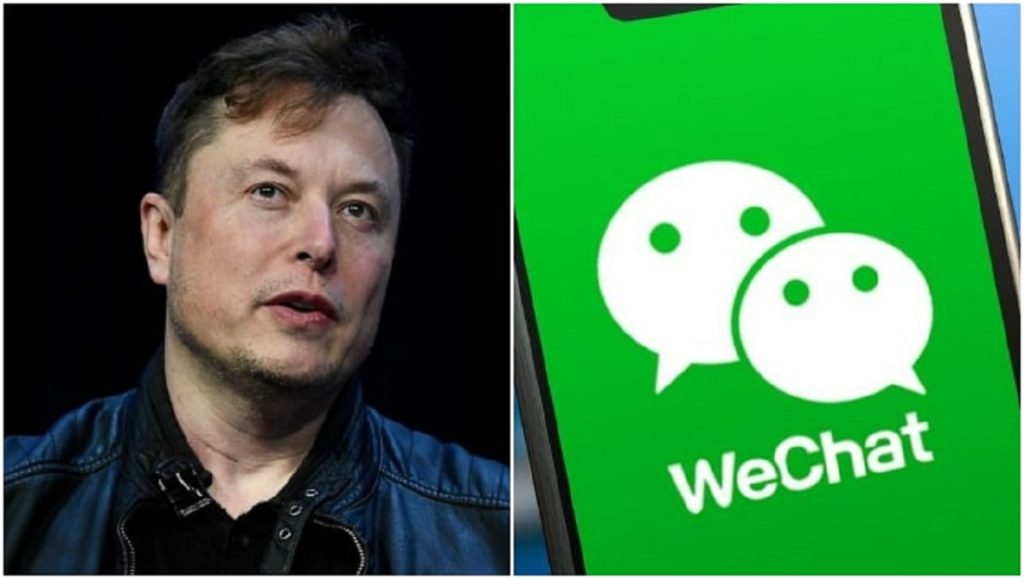|
Getting your Trinity Audio player ready...
|
In a bold move earlier this week, billionaire entrepreneur Elon Musk rebranded Twitter as “X,” a significant step in his ambitious plan to transform the social media platform into a massive multifunctional platform similar to China’s mega app, WeChat. Musk, who acquired Twitter last year for a staggering $44 billion, has been vocal about his admiration for WeChat’s all-encompassing capabilities, aiming to replicate its success on the global stage.
WeChat, launched by Chinese technology giant Tencent in 2011, has become an integral part of China’s digital landscape, used by nearly all of the country’s 1.4 billion population. Often dubbed a “super-app,” WeChat offers an impressive array of services, including messaging, voice and video calling, social media, food delivery, mobile payments, gaming, news, and even dating. Its widespread adoption has made it nearly impossible for people to function in Chinese society without it.
Key features of WeChat include “Chats” and “Moments,” reminiscent of WhatsApp and Facebook, respectively. The app’s “Wallet” feature allows users to link their debit and credit cards, facilitating seamless mobile payments across a wide range of merchants. Moreover, it serves as a platform for accessing government services, from checking social security information to booking hospital appointments.
While WeChat’s all-in-one approach has undeniably contributed to its massive popularity, it has also raised concerns. The app’s extensive reach into various aspects of Chinese life has sparked worries about government censorship, surveillance, and privacy issues. As China tightly controls internet access and information, dissenting voices on WeChat risk having their accounts suspended or shut down for expressing views that go against government interests.
Despite its undeniable success in China, experts question whether a WeChat-style app would thrive in Western markets. One crucial factor behind WeChat’s triumph in China lies in the country’s widespread adoption of digital payment technologies. In contrast, the West still heavily relies on cash and credit cards for transactions, making the transition to a fully cashless society more challenging.
Elon Musk’s vision for “X” hinges on integrating social media with digital payments, recognizing the elements that have made WeChat an indispensable part of daily life in China. However, experts believe that the cultural and regulatory differences between China and Western countries may pose significant challenges.
Kecheng Fang from the Chinese University of Hong Kong highlights that China’s relatively late adoption of the internet led to smartphone-based walled gardens of apps, making it easier for WeChat to become an “everything app.” Meanwhile, China’s less stringent competition regulation allowed WeChat to effectively block rival platforms.
It remains to be seen whether Elon Musk’s aspirations for “X” will come to fruition outside China. As the Western world grapples with the digital payment revolution and seeks to implement cashless systems, the success of a WeChat-inspired super-app may depend on how well it aligns with the region’s evolving needs and preferences. As the transformation unfolds, tech enthusiasts and industry experts eagerly await the outcomes of Musk’s ambitious venture.
As Elon Musk’s ambitious plan for “X” unfolds, the tech industry is abuzz with speculation about the platform’s potential impact and the challenges it may face in the Western market.
One crucial aspect that could determine “X’s” success is the willingness of users to embrace digital payments on a widespread scale. In China, the seamless integration of WeChat Pay into the daily lives of millions has been instrumental in the app’s success. However, in the West, the transition to cashless systems may take longer due to existing preferences for traditional payment methods like credit cards and cash.
Kendra Schaefer from policy research firm Trivium China emphasizes that social media integration with digital payments could be the “secret sauce” that makes the super-app concept work. Merging communication, social media, and financial services could create a seamless user experience, encouraging more people to adopt digital payments for various transactions. This convergence of services could be the driving force behind “X’s” potential appeal.
However, Edith Yeung from investment firm Race Capital cautions that it might take time for the Western world to fully embrace a cashless or credit card-free society. She notes that despite China’s legal obligation for shops to accept cash, digital payments have become the norm due to their convenience and ease of use. In contrast, the Western market’s reliance on cash and cards may present challenges for “X’s” aspirations.
Another hurdle “X” may face is the potential resistance from regulatory bodies and competition authorities. In contrast to China’s less stringent competition regulation, the Western world has robust antitrust and competition laws that closely monitor tech giants. A comprehensive “everything app” like “X” could raise concerns about market dominance, data privacy, and potential anticompetitive practices, attracting scrutiny from regulatory authorities.
Moreover, the issues of censorship and privacy, which have been raised in the context of WeChat, may also come into play for “X.” As an all-encompassing platform with broad access to users’ data, concerns about user privacy and data security may arise, especially given the scrutiny that major tech companies face in Western markets.
Elon Musk’s ambitious plan to transform “X” into a multifaceted platform akin to WeChat demonstrates his determination to explore new horizons and redefine social media’s role. While “X” might face formidable challenges, Musk’s vision and ability to innovate have previously driven successes in various ventures, making him a prominent figure in the tech world.
As “X” evolves, the world watches closely to see how it navigates the intricate dynamics of the Western market and addresses concerns related to data privacy, competition, and user adoption. Should Musk’s vision materialize, “X” could potentially become a groundbreaking platform that revolutionizes how people interact and conduct their daily affairs, reshaping the future of social media as we know it. Only time will tell if Elon Musk’s bold endeavor will be another extraordinary addition to his impressive portfolio of accomplishments.
